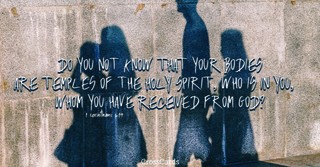
- Recent Translations
- All Translations
Kehillah in Corinth I 6:4
Share
Settings
Images for Kehillah in Corinth I 6:4

Kehillah in Corinth I 6:4 Meaning and Commentary
If then ye have judgments of things pertaining to this life,
&c.] Not judgements relating to life and death, for these were not in the power of a Jewish sanhedrim now, and much less of a Christian community, but were wholly in the power of the Roman magistrates; but judgments relating to the common affairs of life, or what the Jews call (twnwmm ynyd) , "pecuniary judgments" F2, in distinction from (twvpn ynyd) , "judgments of souls", or capital ones. The Jews say {c},
``that forty years before the destruction of the temple, capital judgments were taken from Israel; and in the days of R. Simeon ben Jochai, pecuniary judgments were taken away from Israel.''Now this Rabbi lived many years after the times of the apostles, so that as yet the Jews had a power of exercising such judgments; and no doubt the Christian's also, who as yet were very little, if at all, distinguished from the Jews by the Romans: and therefore since such judgments were within the compass of their authority, the apostle advises
to set them to judge who are least esteemed in the church;
meaning, not those of the lowest circumstances of life, and of the meanest abilities and capacities; for in the next verse he requires a wise man for such a business; but private persons, laymen, who were not in any office and authority in the church, in distinction from pastors, elders, and rulers, that were in office, power, and high esteem, whom he would not have troubled with cases of this nature; but should rather choose out from among the laity persons of the best judgment and capacity, to be umpires and arbitrators in such worldly matters, which do not so properly come under the notice and cognizance of spiritual guides. The phrase, "to judge", is not in the original text, where it is only (kayizete) , "set", or "put in the chair"; but is added in the Vulgate Latin version; and to which agree both the Syriac and Arabic versions; the former reading the words, "they that are despised in the church, set for you in judgment"; and the latter, "make them to sit judges". The Jews, as Dr. Lightfoot observes, besides their great sanhedrim of seventy one persons, and that other of twenty three in their cities of note, and their triumvirate in every synagogue, had also two sorts of benches, who judged of lesser matters; the one was called (Nyxmwm lv Nyd tyb) , "the bench of authorized persons", experienced men, that were approved of, and had their authority from the sanhedrim; and the other was called (twjwydh lv Nyd tyb) , "the bench of idiots" F4, or private persons, or (Nyxmwm Nnyav Nyd tyb) , "the bench of those who were not authorized" F5, or had not their authority, from the higher courts; but being judged proper persons, were chosen by the people to arbitrate matters in difference between them; and these are the men the apostle means, at least alludes to, before whom he would have the causes brought.
F2 Misn Sanhedrin, c. 1. sect. 1.
F3 T. Hieros. Sanhedrin. fol. 24. 2.
F4 T. Bab. Bava Metzia, fol. 32. 1.
F5 Maimon. Hilch. Ishot, c. 17. sect. 13. T. Bab. Gittin, fol. 88. 2. Gloss. in. ib.